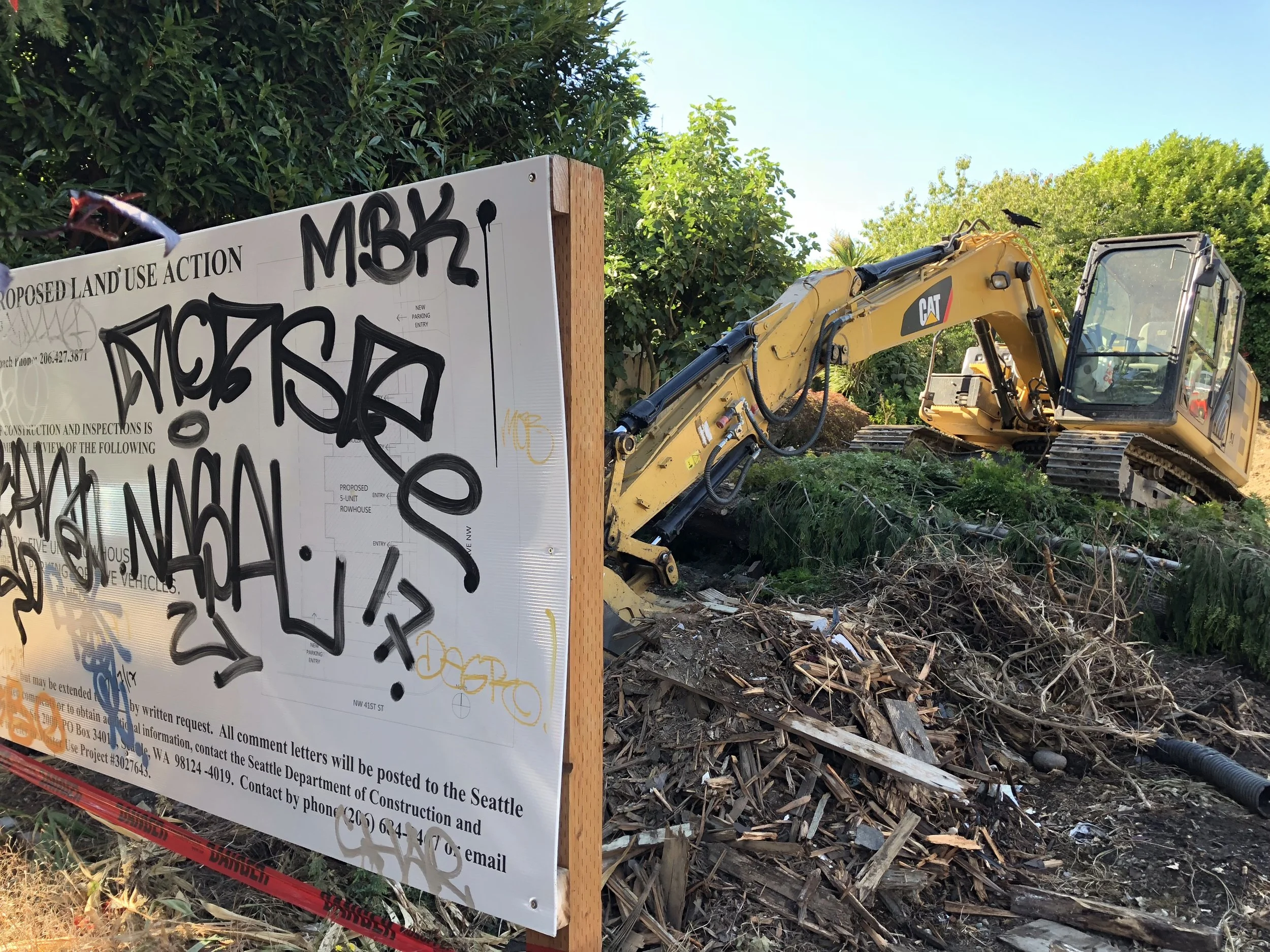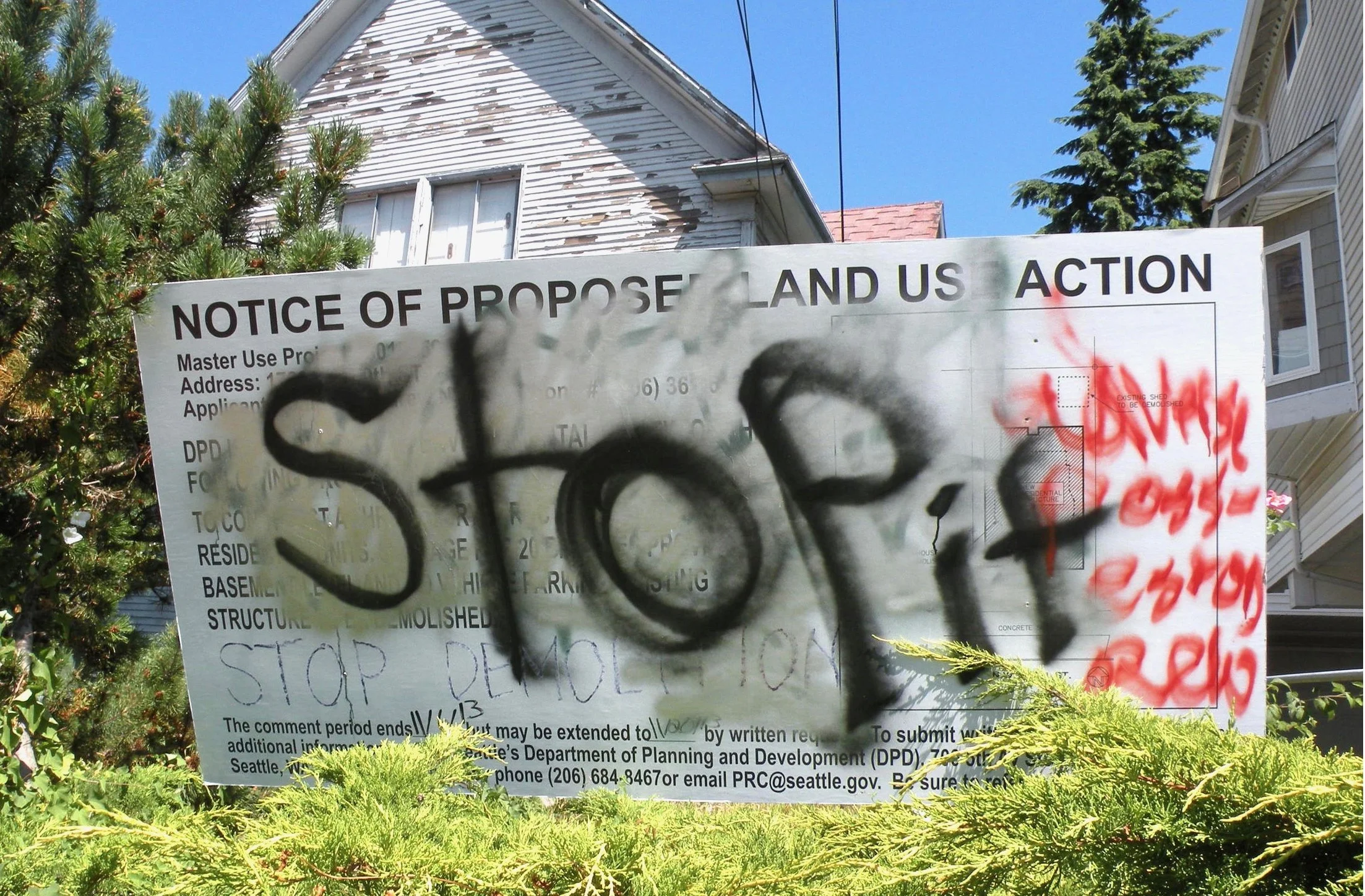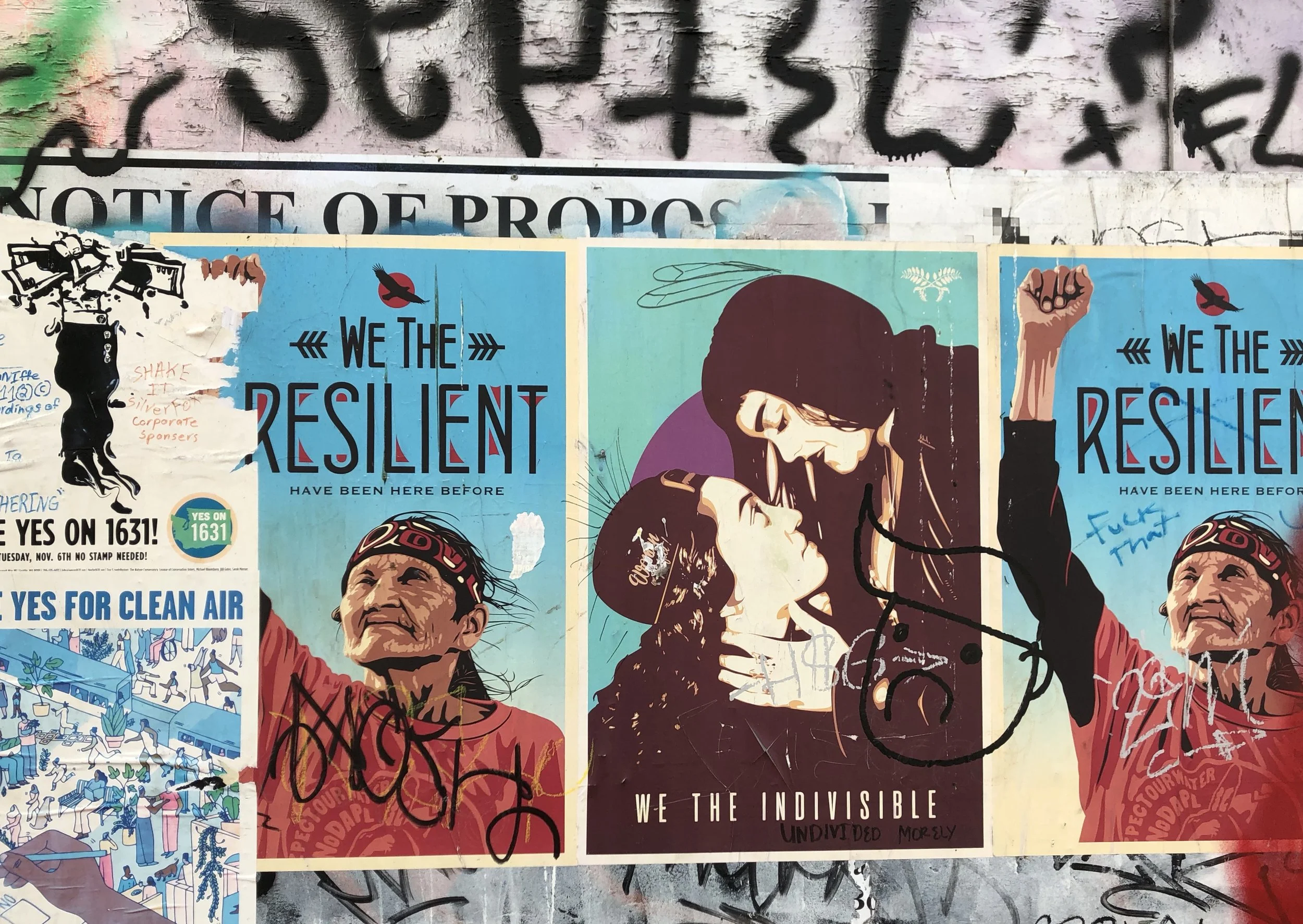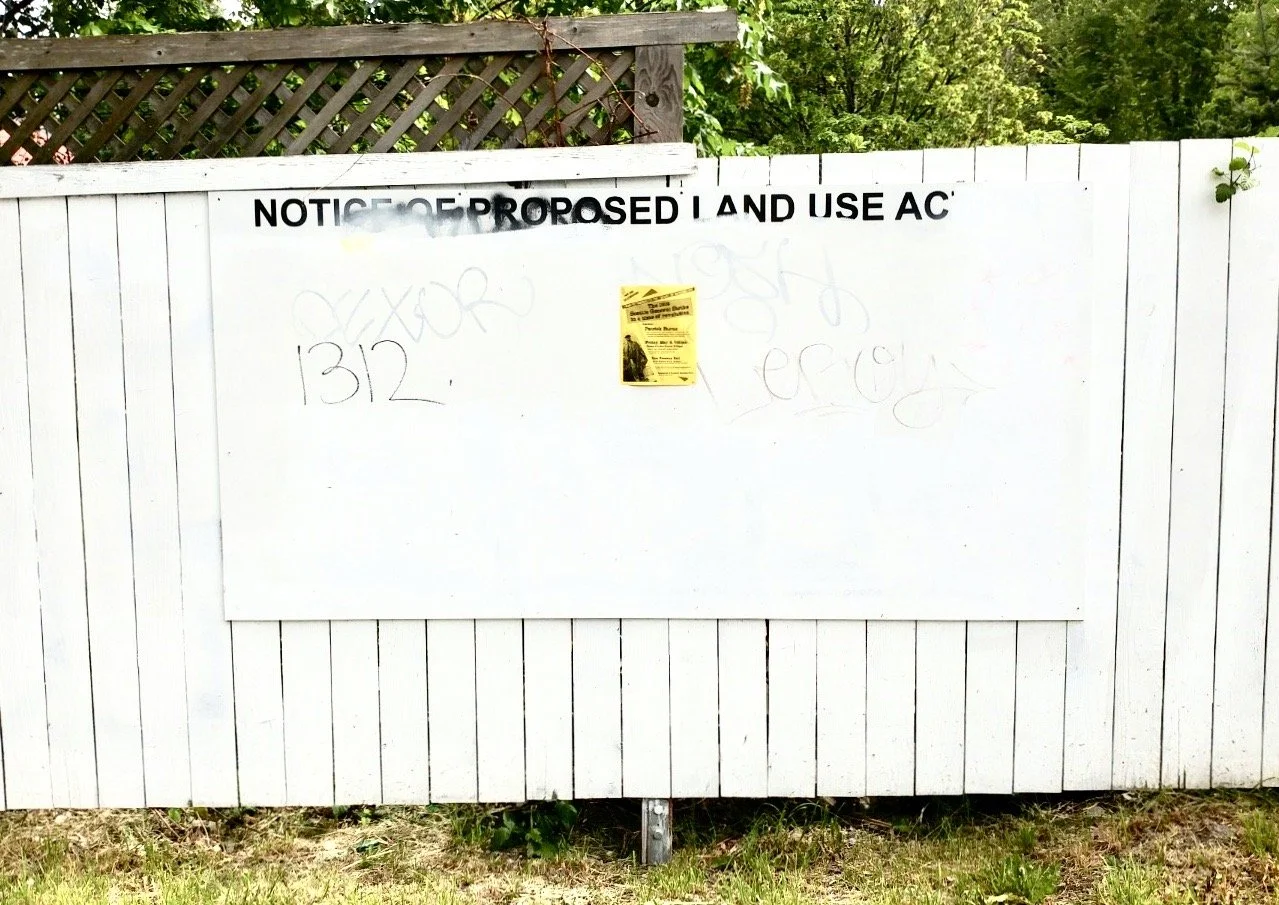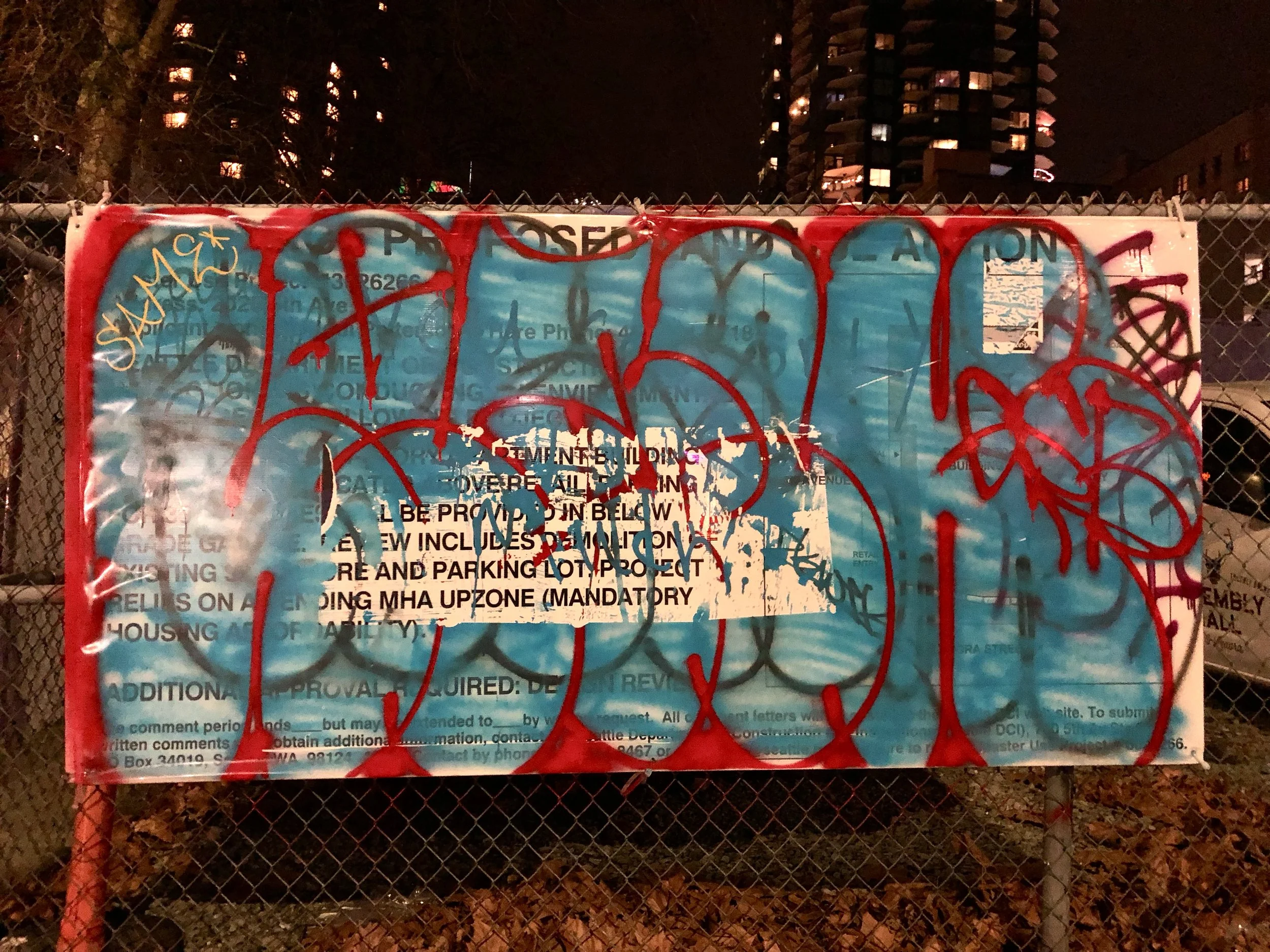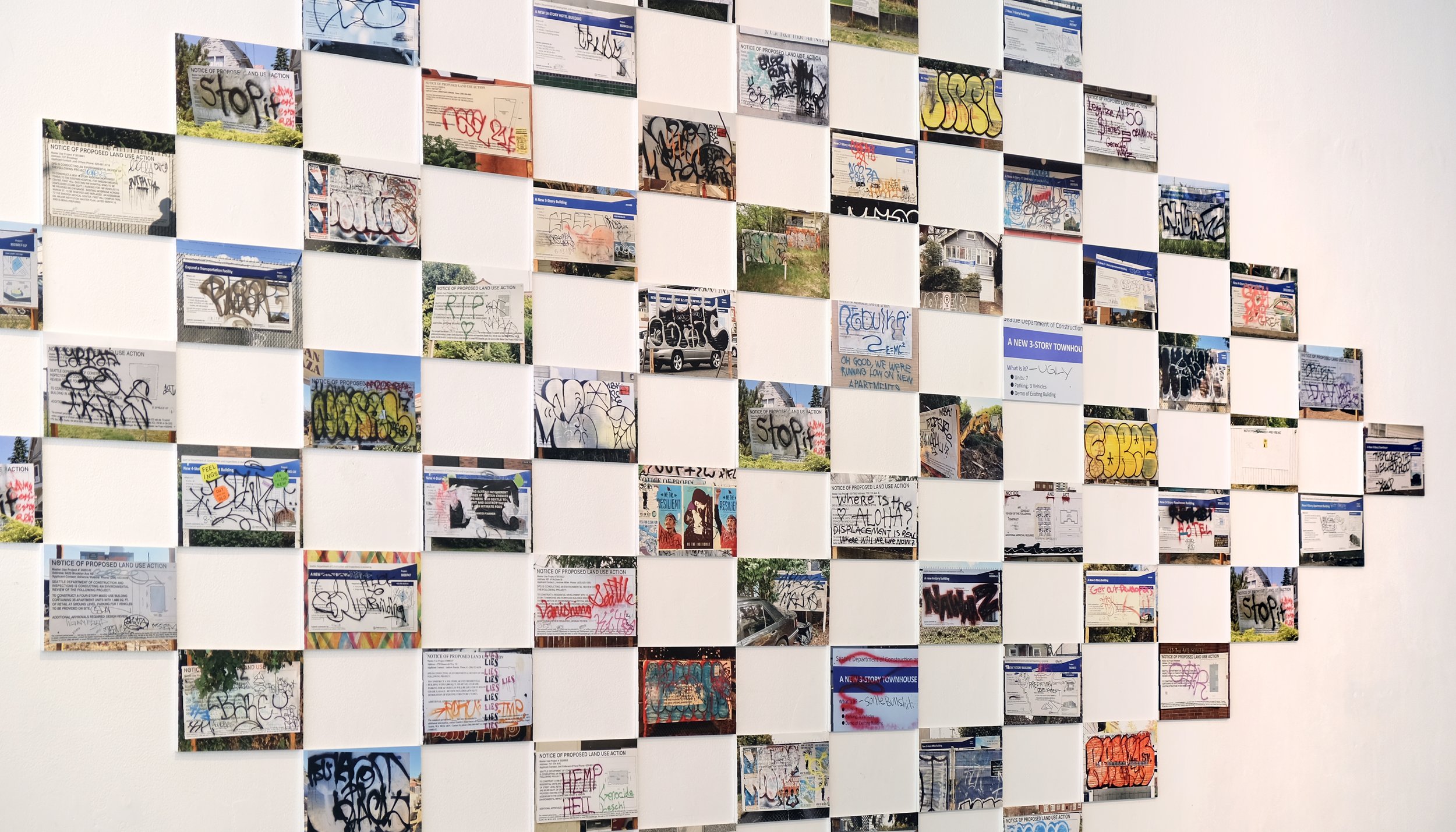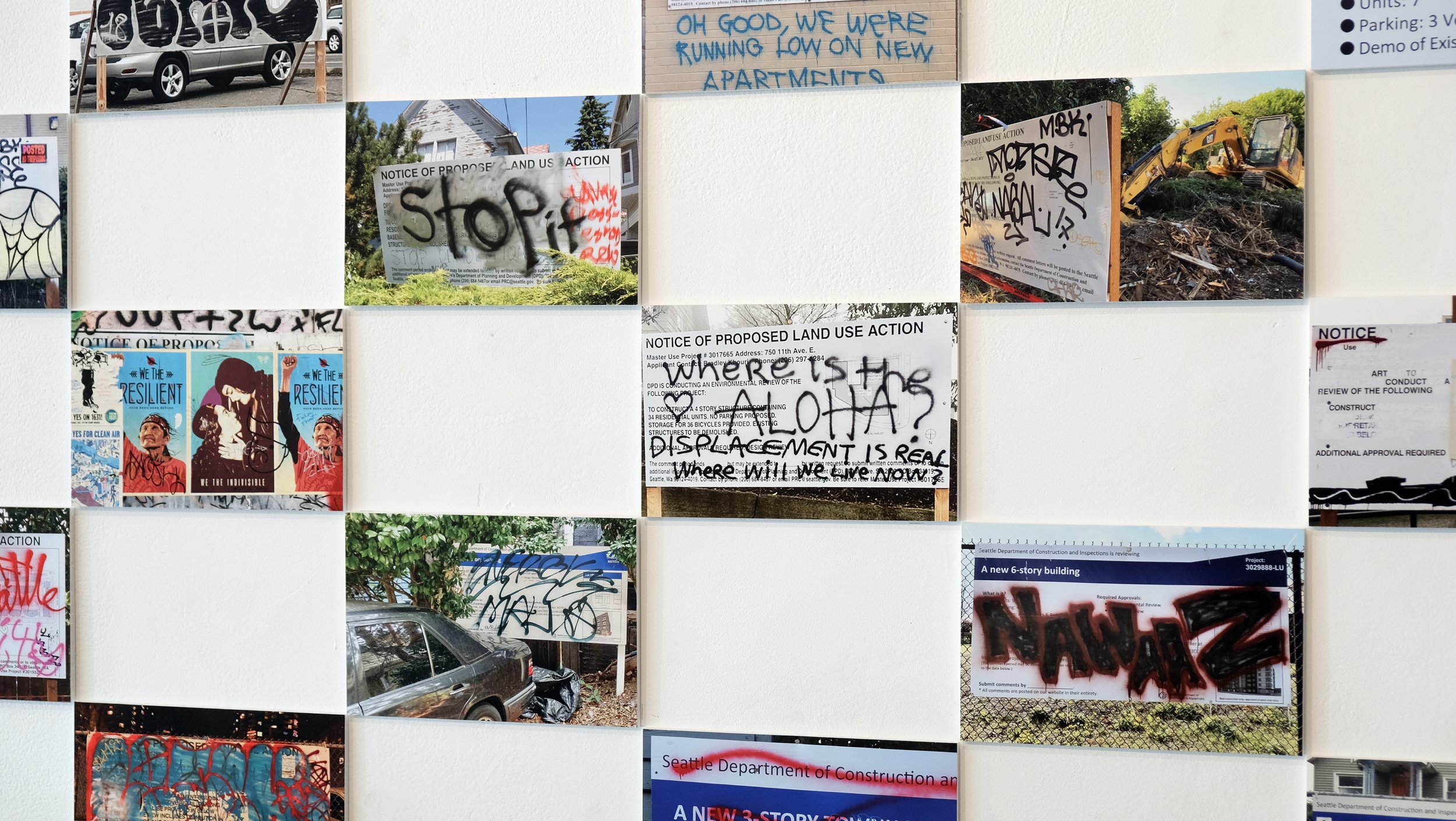The word "repossessed" has a double meaning: "taken away from" and "reclaimed".
REPOSSESSED
Curated by Ellen Ziegler
Monyee Chau, Elisheba Johnson, Sara Osebold, Kristen Ramírez, Daniel R. Smith, Ellen Ziegler
Curator’s statement:
Repossessed brings to light a generally unknown part of Seattle’s history. Before 1968, homeowners in Seattle and adjacent communities could and did put language like this in their deeds: "No persons of Hebrew, Asiatic or Negro blood shall be permitted to occupy any portion of said property…” As of 1968 these restrictions were outlawed, but the words are a painful reminder of our very recent past. (Restrictive covenants are not the same as redlining (see below)*
Repossessed confronts this history as well as parallel and mirroring exclusions: current economic conditions that leave so many unable to buy or rent homes in the city or to stay in the neighborhoods they have lived in for generations.
* Restrictive covenants are not to be confused with redlining – refusing a loan, a mortgage or insurance to someone because they live in an area considered to be a "poor financial risk" – an area having significant numbers of racial and ethnic minorities, and low-income residents.
I asked artists from five racial and religious groups prohibited in the past or feared in the present – Chinese, Black, Japanese, Latinx, and Native American – to make work in a personal response to this ongoing legacy. There is always the risk of didacticism and they avoided it elegantly. Artists Monyee Chau (Chinese), Elisheba Johnson (Black), Sara Osebold (Japanese), Kristen Ramírez (Latinx), and Dan Smith (Native American/ Swinomish) responded with feeling and insight. As a Jew, I have found that painful memories can empower action.
Click on images to see slide show.
Repossessed - Ellen Ziegler
Artist’s statement
For Repossessed, I photographed over 100 defaced "Notice of Proposed Land Use Action" signs in Seattle. Often they announce the demolition of existing buildings in order to build new construction. And often they signal the demolition of homes and the disintegration of communities in which people have lived for generations, in neighborhoods that they now can no longer afford. The signs’ messages are ironic, pleading, angry, fatalistic, funny/not funny. Even those that are just tagged resonate as a spirit of protest.
Click on any of the photos above for a slide show.








